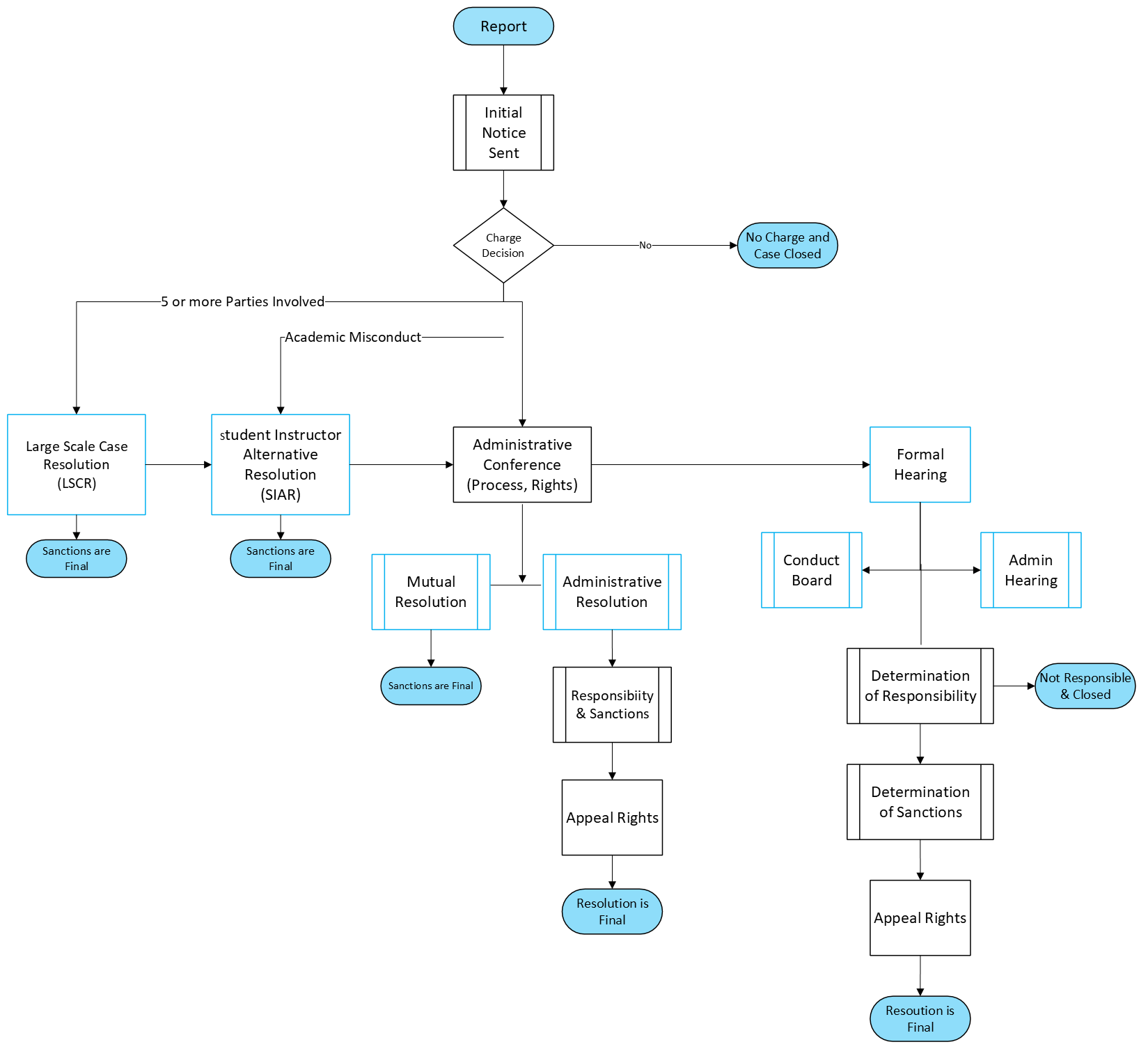The Student Code of Conduct and accompanying Student Conduct Procedures superseded the Instrument of Student Judicial Governance on August 16, 2024.
The Student Code of Conduct (Code) outlines behavior expectations and responsibilities for students and student organizations related to academic and non-academic misconduct detailing prohibited behaviors and corresponding disciplinary actions.
PURPOSE:
The University of North Carolina at Chapel Hill is committed to fostering a community where intellectual honesty and personal integrity are highly values; individuals are trusted, respected, and fairly treated; and there is consistent accountability for conduct that affects the safety and welfare of the University and its members. The Code embraces the ideals of academic honesty, personal integrity, and responsible citizenship.
PROCESS OVERVIEW


